NASFAA Celebrates Hispanic Heritage Month
By Maria Carrasco, NASFAA Staff Reporter
As Hispanic Heritage Month comes to a close, NASFAA is highlighting several Latino members and the work they do in financial aid offices across the country.
We asked these members how their community helped or inspired them to work in financial aid. Here are their answers:
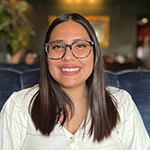 Chelsea Amezcua, financial aid counselor at the University of California, Irvine
Chelsea Amezcua, financial aid counselor at the University of California, Irvine
"One of the biggest inspirations my community has given me to work in financial aid is that we are extremely under-represented and we need people, like myself, to be a strong representation. Many families struggle to be able to understand financial aid for various reasons. I strive to be able to bridge that misunderstanding and show families the possibilities of their futures."
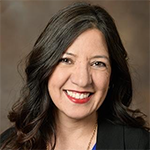 Eva Batista-Wietecha, program coordinator of Title IV compliance for the office of financial aid and scholarships at Pima Community College
Eva Batista-Wietecha, program coordinator of Title IV compliance for the office of financial aid and scholarships at Pima Community College
"As a first-generation college graduate, I see a lot of myself still in today's first-generation college students. The pivotal moment for me was being approached by a financial aid staff/representative at a college fair during my senior year of high school. It was at that moment that I was introduced to the mere idea that I too, had the opportunity. Some of the same characteristics of first-gen students still exist today, which is why community and early outreach is so important. My community continues to inspire me to give back and make a meaningful contribution by participating in outreach events to help students reach this pivotal point in their lives as well."
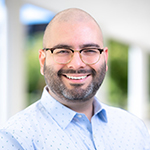 Daniel Carlos, senior associate director of student financial aid services at the University of Idaho
Daniel Carlos, senior associate director of student financial aid services at the University of Idaho
"If I had to point to anything in particular and say, that is it, that is why I do what I do in financial aid, I would reflect back to my time before financial aid. I worked at McDonald’s in high school and one day a family came in who only spoke Spanish. The cashier did not speak Spanish and I was on french fry duty since I was brand new. The family had one of their kids who was maybe 6 or 7 translating the order for the family. The little kid just jumped into action and started ordering for the family. I overheard what was going on and jumped in to help. I think about that interaction a lot when I am working our Spanish FAFSA workshops or recruitment events."
 Rosie Castañeda, senior associate director of financial aid and scholarships at the University of California, San Diego
Rosie Castañeda, senior associate director of financial aid and scholarships at the University of California, San Diego
"The passion I have for the financial aid profession and for higher education runs deep. I am a first-generation college student, and financial aid played a vital role in my college success, which has instilled in me a deeper appreciation for the significance financial aid plays in two critical elements of college access: affordability and retention."
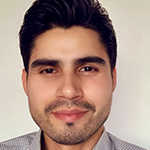 Ruben Garcia, financial aid counselor at the University of California, Los Angeles
Ruben Garcia, financial aid counselor at the University of California, Los Angeles
"As a first-generation Latino college graduate, my community and financial aid were instrumental in obtaining a higher education. By working in financial aid, and helping students, especially those who I see myself reflected in, I honor those generations before me — those generations who did not get a chance to an education, but did everything in their power so that their children would have a chance at future opportunities. Generations, who in the face of constant struggles, with nothing other than what some may call deranged optimism, and a trailblazing spirit, carved the way to what I am today. In the same way and tradition, I hope to help keep carving that path for future generations."
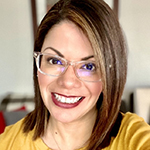 Silvia Marquez, executive director of financial aid and scholarships at the University of California, San Diego
Silvia Marquez, executive director of financial aid and scholarships at the University of California, San Diego
"As a first-generation Latina from a low-income background, I understand both the value of a quality education and the challenges of navigating a complex, bureaucratic process like financial aid firsthand. I was fortunate to have my tia guide me through those challenges as a student. It is a pleasure and a privilege to serve as a financial aid empowerment agent for historically marginalized students, families, and communities on a daily basis. I am pouring into them what my Latinx community has poured into me."
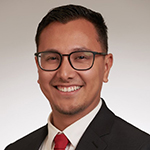 Edgar Martinez, lead compliance officers for financial aid and scholarships at the University of California, Los Angeles
Edgar Martinez, lead compliance officers for financial aid and scholarships at the University of California, Los Angeles
"My community’s resilience has inspired me to continue working in the financial aid industry by improving accessibility to low-income, first-generation, and historically disadvantaged students with the potential for academic success. As a first-generation Latino male and a former recipient of federal aid, I have experienced the benefits of the Title IV program. I am passionate about working as an agent of change and remaining a liaison between the complexities and often misunderstood financial aid processes."
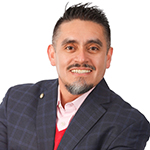 Robert Merino, dean of financial aid services at San Jacinto College
Robert Merino, dean of financial aid services at San Jacinto College
"My college is located in a predominantly Hispanic community. As a result, we have many students who are first-generation children of immigrants. As an immigrant myself, whose family came to the United States when I was 10 years old, it has always been my responsibility to support as many people within my community as I can, especially those who are most in need of assistance."
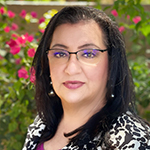 Pat Peppin, director of financial aid at Mesa Community College
Pat Peppin, director of financial aid at Mesa Community College
"I'm a Mexican-American born, first-generation college student. My dad sacrificed everything that he could to give his family a better life in the United States back in the 1960s. So now it is my turn to help out my gente. When I assist in the Spanish financial aid workshops at our local high schools and help the Latino families with their FAFSAs, I can tell the parents have just gotten out of work because they are wearing their uniforms, or you know they have been working out in the hot sun all day. They have made sure they are there supporting their child in completing the FAFSA and to see if they are eligible for money to go to college. When you tell that family that their EFC is zero and how much free money their child will be receiving to go to college and that all their tuition and books will be paid for (I work for a community college), the tears of joy that run down their faces, the big smiles, and the humble gratefulness they demonstrate to you that their child will get an education — it's the best feeling ever. All the sacrifices they have made and continue to make in order for their children to have a better life than they did has paid off. There is no bigger joy, inspiration, and satisfaction than that in my job. I love it."
 Andrea Renteria, advisor of financial aid and scholarships at the University of California, Los Angeles
Andrea Renteria, advisor of financial aid and scholarships at the University of California, Los Angeles
"Personally, during my high school-to-college transition my mom was always very attentive trying to help me, but my parents being immigrants, not speaking the language, and never having attended college obviously limited their knowledge and their ability to help me through a lot of barriers. It is heartbreaking that I know there are so many Latin families out there in that same situation. It is for this reason that I feel it is my duty as a Spanish-speaking financial aid advisor to prepare myself fully to help the students attentively. Since I lived in a predominantly Spanish-speaking household, but attended English-speaking institutions, I began mixing both idioms and began expressing myself in ‘Spanglish.’ To mitigate this when speaking with parents of Spanish-speaking students, I make sure to practice many Spanish financial terminology to better assist families. My ongoing goal is to be an ally to my community."
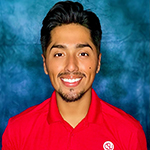 Armando Zavala Jr., scholarship coordinator and financial aid counselor at California State University, Channel Islands
Armando Zavala Jr., scholarship coordinator and financial aid counselor at California State University, Channel Islands
"I am a proud first-generation Latino graduate and am grateful for the incredibly supportive community I connected with throughout my undergraduate journey. I began my professional development at Oxnard Community College, where I served as a student ambassador and assisted incoming students to complete their financial aid applications. Soon after, I transferred to the beautiful University of California, Santa Barbara, and continued this line of work as a peer advisor for their financial aid department. Although leaving my hometown was difficult, many campus staff members provided a great sense of belonging through their guidance, helping me attain academic success. I now proudly serve as the scholarships coordinator at the California State University, Channel Islands, because I am able to continue assisting students in meeting their educational goals."
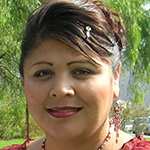 Maria Elena Zendejas, assistant director of financial aid and scholarships at California State University, Channel Islands
Maria Elena Zendejas, assistant director of financial aid and scholarships at California State University, Channel Islands
"Making Ventura County a better place starts with each one of us, whether we are a STEM environmentalist or a champion of financial aid. I am a Latina woman who has worked in higher education most of my life. I was born and raised in Ventura County. Throughout my childhood, I believed in myself that I can one day be a leader and make a difference if I really wanted to. All I needed were the right people to give me the opportunity to demonstrate my professional skill set. When I put myself through college, I applied for financial aid and realized this was a great opportunity to allow me to gain the knowledge and education I very much desired. It was not only the financial aid support that helped, but it also helped my well-being by allowing me to have quality time with my daughter.
My community consisted of caring mentors who took a chance on me and taught me to be a professional. We can all use some polish once in a while. We never stop growing in our role. Life has many changes, and we simply continue to learn and adapt the best we can. We work hard on strategies, processes, and policies to have best practices and make this a smooth process for both the student and ourselves. My biggest inspiration in working in financial aid was the satisfied feeling of helping others. To make it possible for others to obtain their educational dreams is very rewarding to me. A resolved financial issue or making a barrier go away makes me happy. Leaving footsteps and helping pave the road for others' journeys is the hope for tomorrow. Being productive every day is my lifetime goal and makes me happy. I have close to 25 years working for the CSU and I have enjoyed training staff, students, and being part of higher education providing excellence in student services. Our students are our future."
Are you a Latino NASFAA member not included in this article but want to share your response? Comment below!
Publication Date: 10/14/2022





You must be logged in to comment on this page.